Shuoying Zhang
Multi-Continental Healthcare Modelling Using Blockchain-Enabled Federated Learning
Oct 23, 2024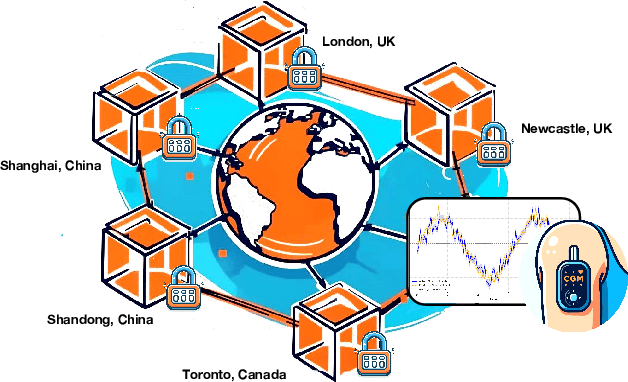
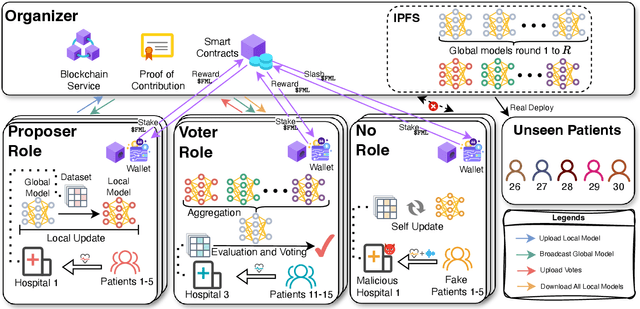


Abstract:One of the biggest challenges of building artificial intelligence (AI) model in healthcare area is the data sharing. Since healthcare data is private, sensitive, and heterogeneous, collecting sufficient data for modelling is exhausted, costly, and sometimes impossible. In this paper, we propose a framework for global healthcare modelling using datasets from multi-continents (Europe, North America and Asia) while without sharing the local datasets, and choose glucose management as a study model to verify its effectiveness. Technically, blockchain-enabled federated learning is implemented with adaption to make it meet with the privacy and safety requirements of healthcare data, meanwhile rewards honest participation and penalize malicious activities using its on-chain incentive mechanism. Experimental results show that the proposed framework is effective, efficient, and privacy preserved. Its prediction accuracy is much better than the models trained from limited personal data and is similar to, and even slightly better than, the results from a centralized dataset. This work paves the way for international collaborations on healthcare projects, where additional data is crucial for reducing bias and providing benefits to humanity.
From Sora What We Can See: A Survey of Text-to-Video Generation
May 17, 2024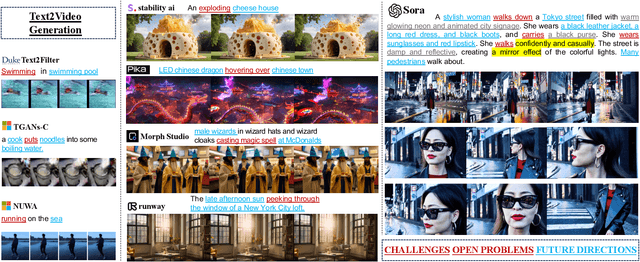
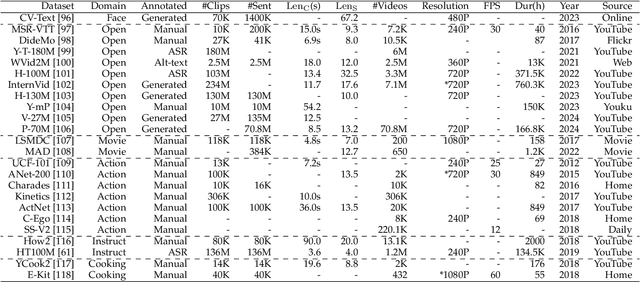
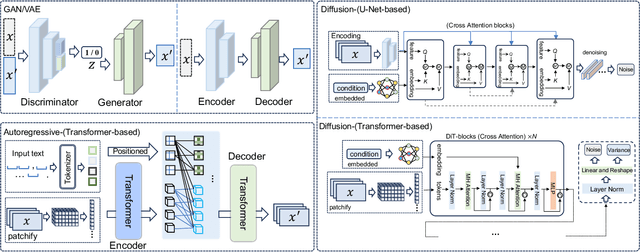
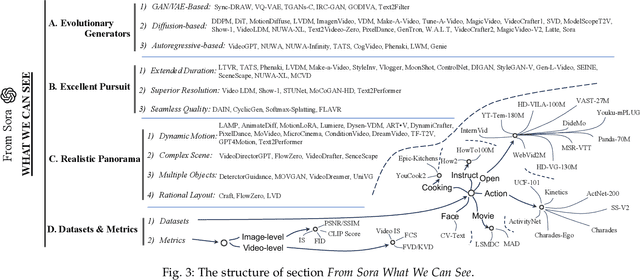
Abstract:With impressive achievements made, artificial intelligence is on the path forward to artificial general intelligence. Sora, developed by OpenAI, which is capable of minute-level world-simulative abilities can be considered as a milestone on this developmental path. However, despite its notable successes, Sora still encounters various obstacles that need to be resolved. In this survey, we embark from the perspective of disassembling Sora in text-to-video generation, and conducting a comprehensive review of literature, trying to answer the question, \textit{From Sora What We Can See}. Specifically, after basic preliminaries regarding the general algorithms are introduced, the literature is categorized from three mutually perpendicular dimensions: evolutionary generators, excellent pursuit, and realistic panorama. Subsequently, the widely used datasets and metrics are organized in detail. Last but more importantly, we identify several challenges and open problems in this domain and propose potential future directions for research and development.
Defending Against Malicious Behaviors in Federated Learning with Blockchain
Jul 02, 2023



Abstract:In the era of deep learning, federated learning (FL) presents a promising approach that allows multi-institutional data owners, or clients, to collaboratively train machine learning models without compromising data privacy. However, most existing FL approaches rely on a centralized server for global model aggregation, leading to a single point of failure. This makes the system vulnerable to malicious attacks when dealing with dishonest clients. In this work, we address this problem by proposing a secure and reliable FL system based on blockchain and distributed ledger technology. Our system incorporates a peer-to-peer voting mechanism and a reward-and-slash mechanism, which are powered by on-chain smart contracts, to detect and deter malicious behaviors. Both theoretical and empirical analyses are presented to demonstrate the effectiveness of the proposed approach, showing that our framework is robust against malicious client-side behaviors.
FLock: Defending Malicious Behaviors in Federated Learning with Blockchain
Nov 05, 2022Abstract:Federated learning (FL) is a promising way to allow multiple data owners (clients) to collaboratively train machine learning models without compromising data privacy. Yet, existing FL solutions usually rely on a centralized aggregator for model weight aggregation, while assuming clients are honest. Even if data privacy can still be preserved, the problem of single-point failure and data poisoning attack from malicious clients remains unresolved. To tackle this challenge, we propose to use distributed ledger technology (DLT) to achieve FLock, a secure and reliable decentralized Federated Learning system built on blockchain. To guarantee model quality, we design a novel peer-to-peer (P2P) review and reward/slash mechanism to detect and deter malicious clients, powered by on-chain smart contracts. The reward/slash mechanism, in addition, serves as incentives for participants to honestly upload and review model parameters in the FLock system. FLock thus improves the performance and the robustness of FL systems in a fully P2P manner.
 Add to Chrome
Add to Chrome Add to Firefox
Add to Firefox Add to Edge
Add to Edge